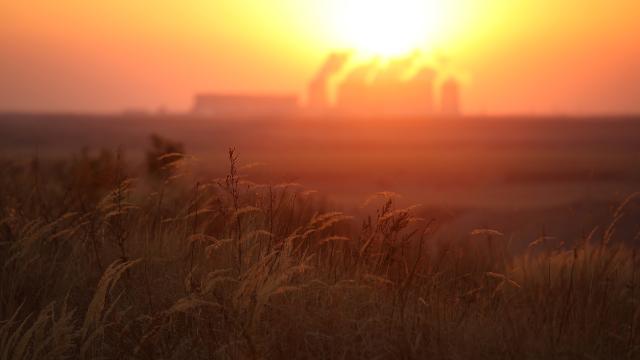The world’s governments have reached a new agreement at the just-concluded international climate talks. The result could advance the fight to mitigate humanity’s carbon dioxide emissions in order to slow climate change. But activists and scientists say that the negotiations didn’t come anywhere near the significant global overhaul needed to seriously address our warming planet.
The agreement was reached late on Saturday night local time in Katowice, Poland where delegates representing almost 200 countries have convened for the past two weeks. Their goal was to further the objectives set forth by the 2015 Paris Agreement to limit global warming to 2 degrees Celsius above pre-industrial levels while striving to keep warming below 1.5 degrees Celsius. While the Paris Agreement lays out the ambitions and countries made their first pledges toward cooling the planet, the talks in Katowice were intended to provide a more robust framework for the how-to part. They delivered that as something called the Paris Rulebook, but the process wasn’t without drama.
While attendees were moved to a standing ovation with the rulebook’s approval, the agreed-upon rules for mitigating climate change are woefully insufficient for a conference that saw children literally petitioning delegates to consider their future. The process to get here over the final few days was also fraught, with Brazil nearly blocking a way forward on emissions accounting and important issues tied to pricing carbon left on the table for future climate talks.
“The rules adopted at COP24 are sound, and their transparency will enable us to know whether countries are on track to meet their targets under the Paris agreement,” Jake Schmidt, managing director of the International program at the Natural Resources Defence Council, said in a statement. “But that’s not enough. Climate change is here and getting worse faster than expected, and that’s why the world needs to move from slow-walking climate action to sprinting.”
Euphoria in plenary of #COP24 as the #ParisAgreement Work Programme, the operating guidelines of the agreement, are adopted by all governments, three years after the historic agreement was clinched pic.twitter.com/xNAlh8vVky
— UN Climate Change (@UNFCCC) December 15, 2018
The slog to the end is about right for a conference regularly marred by fossil fuel-producing countries. Last week, a group of oil allies comprising Kuwait, Russia, Saudi Arabia, and the U.S. held up discussions by splitting hairs over whether the climate talks should “welcome” or “note” a key scientific finding from the Intergovernmental Panel on Climate Change report. Welcoming the findings is a much stronger acknowledgment of what they said: Namely, that carbon emissions must drop 45 per cent by 2030 in order to have a chance to stop warming at 1.5 degrees Celsius. In the final text, negotiators reached a compromise by welcoming the completion of the report but not the findings themselves.
More embarrassing was a pro-fossil fuel event led by the U.S. and headed by Wells Griffith, a Trump administration climate and energy advisor and man who apparently can’t read a room to save his life.
May Boeve, executive director of nonprofit 350.org, said in a statement that it was “maddening to see how the fossil fuel lobby was given free rein at the climate talks.”
“The end result is underwhelming, signalling that not even the last IPCC report on 1.5°C was enough of a wake-up call for some of the biggest polluters on the planet. Even more troubling, the United States, Russia, and Saudi Arabia have gone out of their way to block the official endorsement of the IPCC report, making it clear the low regard in which they hold both science and multilateralism,” Boeve said. “By refusing to acknowledge what needs to be done before it’s too late and making the tiniest of tiny baby-steps of progress, politicians have pushed this climate COP toward irrelevance.”
President Donald Trump and his administration have fairy tales any which way it can.
“The Trump administration and rogue states like Russia and Saudi Arabia forged an alliance of climate denial that poisoned this year’s negotiations,” Jean Su, energy director at the Center for Biological Diversity, said in a statement. “The final rulebook is far too anemic to pull us back from the brink of climate catastrophe.”
As the future of our planet hangs delicately in the balance, climate action could increasingly rely on the efforts of activists, communities, and individual nations to shift the tide toward a more sustainable world in order to avoid, as Su put it, “condemning the planet to suicide by fossil fuels.”
Brian Kahn contributed reporting.
